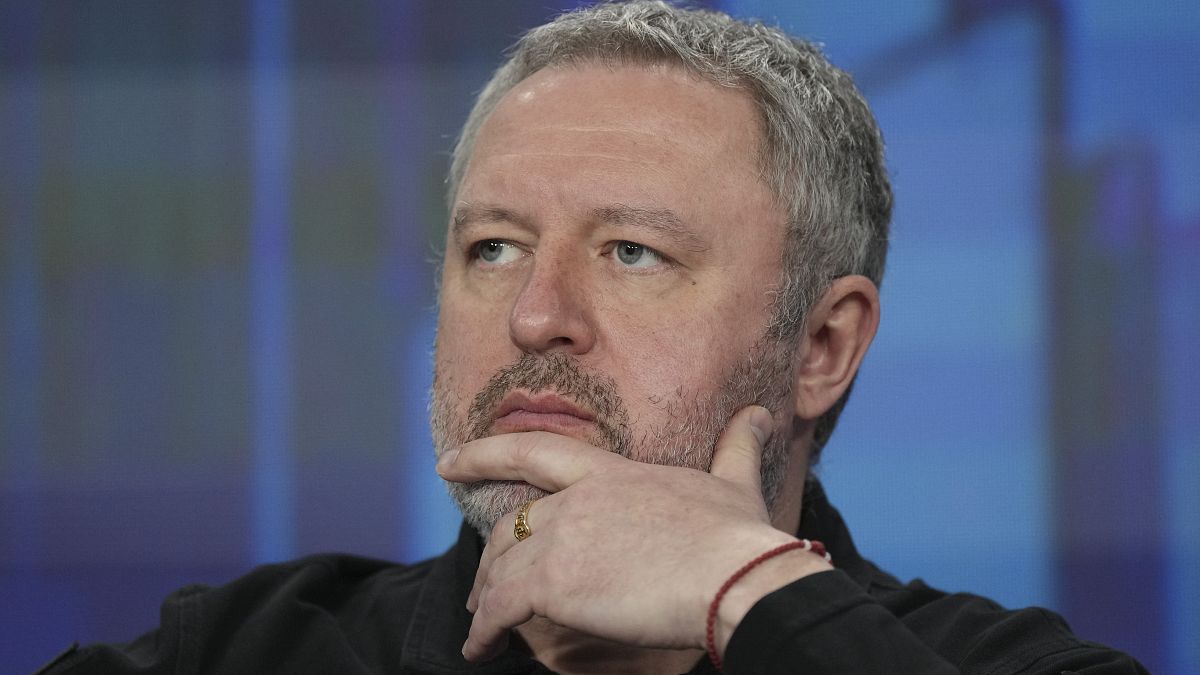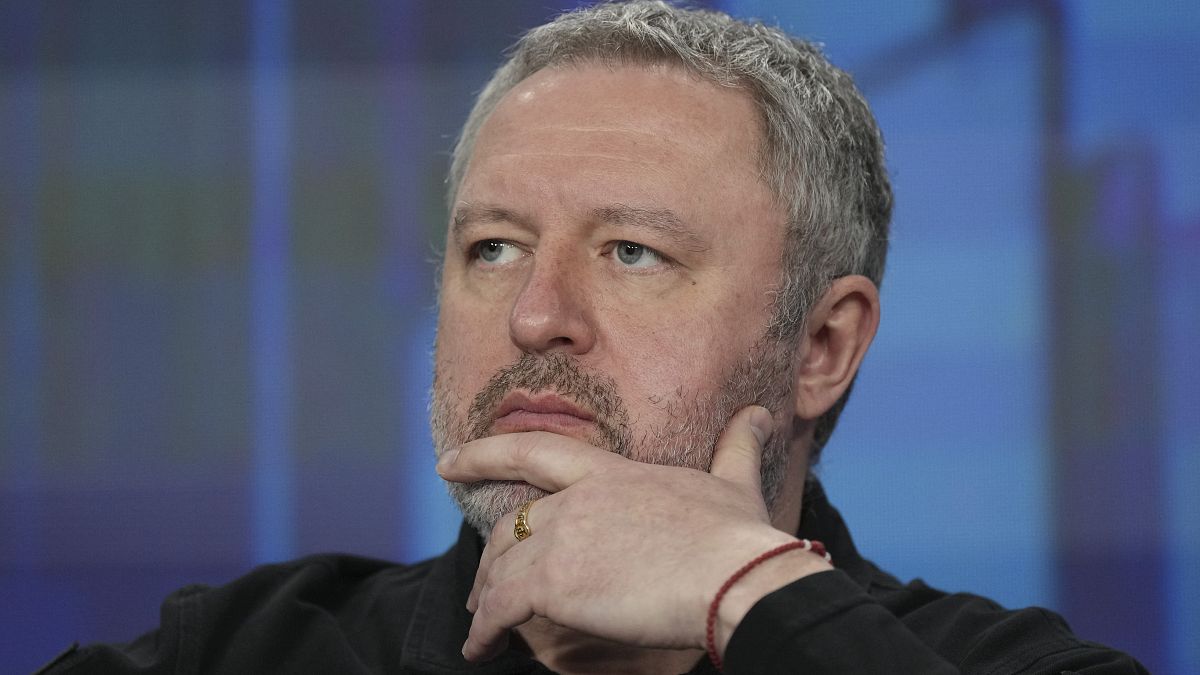Travel
Venice brings back daytripper fee for 2025, doubling cost for last-minute bookings
The fee will go up to €10 for last minute bookings.
Venice will extend its day-tripper tax next year, increasing the number of days on which tourists have to pay to enter the city and doubling the fee to €10 for last-minute visitors, city officials said on Thursday.
Mayor Luigi Brugnaro stressed that the tax aims to help the city and its citizens battle overtourism and avoid huge influxes of visitors during crowded holidays and weekends.
The payment system was launched earlier this year for a time-limited pilot program.
Venice announced last year it would introduce the long-discussed day-tripper fee after the city narrowly escaped being placed on the UN’s list of endangered heritage sites, due largely to the impact of overtourism.
Visitors staying overnight in the historic centre are exempt from the charge as they already pay a tourist tax.
How does Venice’s entry fee work?
The new tax will be applied every Friday through Sunday and on holidays from 18 April to 27 July, for a total of 54 days.
That’s almost double the number of days it was applied this year. Tourists who don’t make reservations up to four days in advance will pay €10 instead of the usual €5.
The tax will be in force during peak hours, from 8.30 am to 4 pm
Exemptions are granted to residents, Venetian-born visitors, students and workers, as well as tourists who have hotel or other lodging reservations.
Anyone found beyond designated control points without the required documentation will be subject to fines.
These will range from €50 to €300, plus the maximum entrance fee allowed by law, set at €10.
Officials have emphasised that the programme aims to reduce crowds on peak days, encourage longer visits and improve the quality of life for residents.
The fee is not required for anyone staying in Venice, including the mainland districts of Marghera and Mestre. Venice’s islands, including glass-making Murano, are also outside the pilot program.
Exemptions are also issued for a variety of reasons, including to access the city for work, school or medical care, as well as to people born in Venice, and residents of the Veneto region.
Why has Venice introduced an entry fee?
Venice has long suffered under the pressure of overtourism, but officials say pre-pandemic estimates ranging from 25 to 30 million visitors a year – including day-trippers – are not reliable and that the pilot project also aimed to come up with more exact figures to help better manage the phenomenon.
By contrast, registered visitors spending the night last year numbered 4.6 million, according to city figures, down 16 per cent from pre-pandemic highs.
The pandemic delayed Venice’s plans to launch the day-tripper tax, which has become a keystone of the city’s attempts to deal with overtourism.
UNESCO cited the plan when it decided not to include the city on the list of endangered world heritage sites last September, a tarnish that it similarly avoided two years earlier with the cruise ship ban through St. Mark’s Basin and the Giudecca Canal.
Cruise ships brought 1.6 million people to Venice in 2019.
Activists sounded a warning last summer when the number of tourist beds officially overtook the number of residents, which has dwindled to under 50,000 in a trend dating back decades.
They said the imbalance drains the city of services, clogging its tight alleyways and water buses with suitcase-toting tourists and pushing residents to the mainland with its conveniences.
Was the trial of the entry fee a success?
At the end of the first test phase in July, officials said the tax had netted €2.4 million, accounting for about 1,000 entrances on each of the test days.
Brugnaro on Thursday again responded to critics who have called it a failure and said it did not deter as many arrivals as expected.
“Venice is the first city in the world that tries to manage the problem of overtourism. We obtained important results,” the mayor said.
But some citizens’ groups and opposition councillors claim the access fee completely failed to control overtourism.
“Data offered by the control room show that on average during the period of implementation of the fee, we had about 7,000 more tourist entries than in previous years,” said Giovanni Andrea Martini, an opposition councillor.
“This shows that the access fee is not at all a system able to manage the flows.”
Travel
France ramps up Schengen border checks. How will travellers be affected?
France’s current border controls will end on 31 October, but a new set of checks will come into effect from 1 November.
France has announced it will extend internal border controls until April next year.
The current increased checks, introduced due to heightened terrorist threats, were due to end on 31 October.
The controls will be in place along France’s Schengen borders with Belgium, Spain, Luxembourg, Switzerland, Germany and Italy.
Travellers have been warned to expect queues and delays.
In September, Germany introduced similar ramped-up checks which have led to traffic jams at the border.
France steps up border controls amid terrorist concerns
France’s current border controls will end on 31 October, but a new set of checks will come into effect from 1 November.
The heightened security measures will be in place until 20 April 2025.
The extension comes after growing concerns over public safety amid threats of terrorist activity and criminal organisations connected to illegal migration.
Where are France’s increased border checks in place?
The new border controls only affect Schengen zone countries – Belgium, Spain, Luxembourg, Switzerland, Germany and Italy.
If you are entering France from a non-Schengen country, such as the UK, there will be no change to checks as passport and customs controls are already in place.
It will also not affect the requirement for passport stamps for non-EU nationals or the maximum permitted stay of 90 days in Schengen zone countries.
If you fly into France from any Schengen country other than the six that border it, there will be no change in border controls.
How will France’s new Schengen border controls affect travellers?
Normally, travellers passing between Schengen zone countries can move freely without passport checks.
However, countries are permitted to impose temporary increased controls for a set time period if deemed necessary – as occurred during the COVID pandemic for example.
Citing security concerns, France has chosen to ramp up checks along Schengen borders for land, sea and air travel.
This means travellers from Belgium, Spain, Luxembourg, Switzerland, Germany and Italy will have to show a form of ID such as a passport or national ID card.
Non-EU nationals who are resident in France may need to show their carte de séjour too.
Travellers warned of queues at French land border
Travellers most affected will be those crossing into France via land borders. Those arriving by car or bus are advised to allow for extra time.
Germany’s increased security checks have resulted in traffic jams and queues at borders.
Those travelling between France and Germany should be aware they might face checks at both borders.
What other countries have increased checks at Schengen borders?
Austria has increased checks in place with Slovenia and Hungary until 11 November.
Denmark, Norway and Sweden have stepped up border security on all internal borders until 11 November.
In Slovenia, checks are in place at the border with Croatia and Hungary until 21 December.
Travel
Missing migrant children investigation wins 2024 Daphne Caruana Galizia Prize for Journalism
The months-long investigation was produced by media outlets from Germany, Italy, Greece, the Netherlands, Belgium, Ireland, and the UK.
An investigation into the disappearance of more than 50,000 child migrants has won the European Parliament’s 2024 Daphne Caruana Galizia Prize for Journalism.
Led by Dutch journalist Geesje van Haren, the Lost in Europe project found that since 2021, on average nearly 47 migrant children arriving in Europe have gone missing per day.
Van Haren told Euronews that many of these missing children fall victim to human trafficking, or find themselves caught up in the EU’s crackdown on people smuggling gangs.
“Many children are also caught at the borders, and they end up in prison for people smuggling while they were being smuggled themselves. So the EU war against people smuggling works out the other way for minor children. A lot of minor children are in adult detention because of that,” Van Haren explained.
“We do know that our police system and the system fails to protect these children. And we also know that there is a high pressure on police teams who need to investigate this. But there’s also a big pressure on police who has to investigate drugs, things. And most of the time human trafficking is related to also to drugs staff working,” she added.
Documentation failures
The research also uncovered significant inconsistencies in documentation and reporting across 31 countries, including Austria, Germany, and Italy, raising concerns that the actual number of missing children may be higher.
It’s latest findings build on research conducted during an initial investigation in 2021, which revealed that more than 18,000 migrant children went missing in Europe between 2018 and 2020.
“We spoke with from NGOs and experts from out in the field. They say this is just the tip of the iceberg, that there were 51,433 children missing. The last time that we did this investigation, there were only 18,000 children missing back in 2021,” Geesje van Haren told Euronews.
She adds that the team also experienced difficulty in accessing data from some countries, with France offering no response at all and Spain claiming they don’t differentiate between adults and minors in their data.
However, van Haren hopes the new EU pact on migration and asylum will make data collection more stringent, which could reveal even more missing children in the future.
Lost in Europe began investigating the stories of missing or ‘lost’ migrant children following a comment made by a former Europol chief of staff in 2016, who said at the time more than 10,000 migrant minors had gone missing in Europe.
The Lost in Europe team are planning to launch a fresh investigation in three years time.
Travel
Ukrainian prosecutor general Andriy Kostin resigns amid draft-dodging scandal


Andriy Kostin, Prosecutor General of Ukraine attends the forum ‘Ukraine 2024’ in Kyiv, Ukraine. – Copyright Evgeniy Maloletka/Copyright 2024 The AP. All rights reserved
Copyright Evgeniy Maloletka/Copyright 2024 The AP. All rights reserved
By Euronews
Published on
Share this article
Kostin’s resignation followed allegations that nearly 50 prosecutors in the western Khmelnytskyi region of Ukraine had acquired false disability certificates.
Ukraine’s prosecutor general Andriy Kostin has publicly resigned following a corruption scandal in which dozens of prosecutors are alleged to have obtained fake disability certificates to enable them to receive social security benefits and avoid conscription.
A statement published by General Prosecutor’s office said the decision to resign came hours after Zelenskyy held a Security Council meeting to discuss “fake disability certificates of officials of state bodies.”
“I consider the position of the President of Ukraine, Volodymyr Zelensky, to be absolutely correct regarding the need not only to annul all unlawful decisions concerning the granting of disabilities, relevant pension payments, and other benefits, but also to implement clear legislative and organizational changes, as well as personal responsibility. This includes political responsibility,” Kostin wrote in his resignation statement.
The allegations emerged last week when a Ukrainian journalist published a story claiming that nearly 50 prosecutors in the western Khmelnytskyi region of Ukraine had been registered as disabled.
Kostin subsequently conducted an in-house investigation which established that 61 prosecutors of Khmelnytskyi region only had disability certificates.
President Zelenskyy has now asked his cabinet to draft a law to overhaul Ukraine’s disability assessment system with a view to dissolving the current medical commissions by the end of 2024.
“There are hundreds of such instances of clearly unjustified disabilities” among officials, President Zelenskyy said in his nightly address on Tuesday. “All of this needs to be dealt with thoroughly and swiftly.”
On Tuesday, Ukraine’s domestic security service, the SBU, also announced that 64 members of medical commissions were identified as suspects in criminal investigations in 2024, with an additional nine having been tried and convicted.
Go to accessibility shortcuts
-

 Sports5 days ago
Sports5 days agoInter, Simone Inzaghi crosses fingers for Calhanoglu
-

 Africa5 days ago
Africa5 days agoShadows Over Democracy in Mozambique
-

 Sports6 days ago
Sports6 days agoJuventus, Thiago Motta compliments his team and is already thinking about the Champions League
-

 EU & the World4 days ago
EU & the World4 days agoLiam Payne’s Autopsy Report: Reported Drugs Found Including ‘Pink Cocaine’
-

 EU & the World4 days ago
EU & the World4 days agoA$AP Rocky’s Trial: Everything to Know About the Charges & More
-

 Sports5 days ago
Sports5 days agoFerrari, Leclerc and Sainz elated: ‘Now the title’. The standings
-

 Sports6 days ago
Sports6 days agoJannik Sinner and Carlos Alcaraz enhance their rivalry and aim higher and higher
-

 Politics6 days ago
Politics6 days agoCreative Europe to support around 40 projects to boost literary translation in 2025









